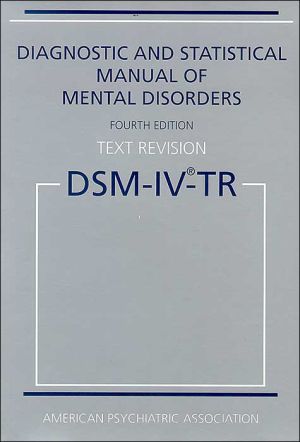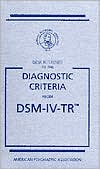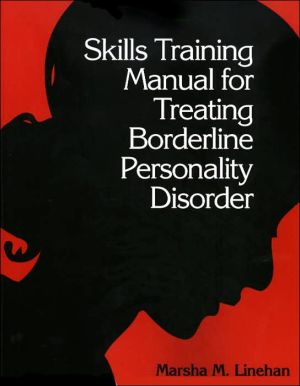Clinician's Thesaurus: The Guide to Conducting Interviews and Writing Psychological Reports
Search in google:
With over 350,000 in print, the Clinician's Thesaurus is an indispensable practitioner resource and course text. It presents thousands of standard words, phrases, clinical tips, and interview questions to help practitioners conduct thorough assessments, accurately describe nearly any clinical situation, and shape clinical observations into effective reports. Finding exactly the right terminology can save hours of paperwork time and improve the quality of documentation. Structured to follow the sequence of a mental health evaluation, the book includes report formats, treatment planning pointers, all DSM-IV-TR and ICD-9-CM diagnostic codes, and much more—all in a large-size format with convenient lay-flat binding. New to This Edition*References, resources, and diagnostic and treatment information are thoroughly updated.*Additional clinical problems: reactive attachment disorder, body dysmorphic disorder, and varieties of violent behaviors.*Sections on strengths assessment and ethical considerations in report writing.*More online resources, including where to obtain free assessment measures and scales. Cognitive Behavioral Therapy Book Reviews "Dr. Zuckerman could have justifiably entitled this extraordinary book ''The Clinician''s Handbook.'' The Clinician''s Thesaurus is much more than a thesaurus--it''s more like a comprehensive guide for client assessment and report writing. Zuckerman has done a remarkable job at creating an extremely valuable and easy-to-use resource for seasoned clinicians and students alike."--Cognitive Behavioral Therapy Book Reviews (on the prior edition)
Getting Oriented to the Clinician's ThesaurusI. Conducting a Mental Health Evaluation1. Beginning and Ending the Interview2. Mental Status Evaluation Questions/Tasks3. Questions about Signs, Symptoms, and Other Behavior PatternsII. Standard Terms and Statements for Wording Psychological ReportsA. Introducing the Report4. Beginning the Report: Preliminary Information5. Referral Reasons6. Background Information and HistoryB. The Person in the Evaluation7. Behavioral Observations8. Responses to Aspects of the Examination9. Presentation of Self10. Emotional/Affective Symptoms and Disorders11. Cognition and Mental Status12. Abnormal Signs, Symptoms, and Syndromes13. Personality PatternsC. The Person in the Environment14. Activities of Daily Living15. Social/Community Functioning16. Couple and Family Relationships17. Vocational/Academic Skills18. Recreational Functioning19. Other Specialized EvaluationsD. Completing the Report20. Summary of Findings and Conclusions21. Diagnostic Statement/Impression22. Recommendations23. Prognostic Statements24. Closing StatementsIII. Useful Resources25. Treatment Planning and Treatment Plan Formats26. Formats for Reports, Evaluations, and Summaries27. Treatments for Specific Disorders and Concerns28. Listing of Common Psychiatric and Psychoactive Drugs29. Psychiatric Masquerade of Medical ConditionsAppendices: A. Abbreviations in Common UseB. Annotated Readings in Assessment, Interviewing, and Report Writing








